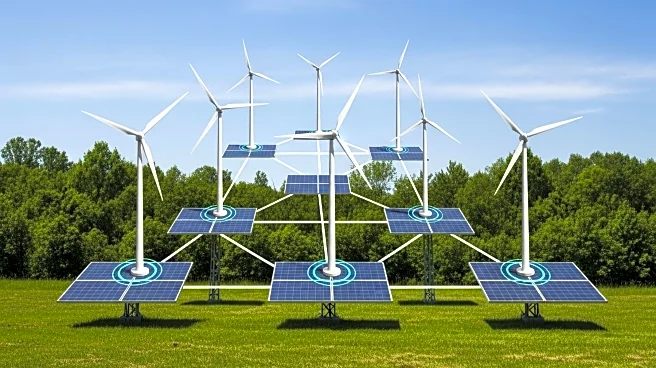What's Happening?
Puerto Rico has implemented an innovative energy solution known as a virtual power plant (VPP) to address its electricity shortages and frequent power outages. Following the devastation of its power grid by a hurricane in 2017, the island has seen widespread installation of solar panels and battery backups. These systems not only provide electricity to individual households but also contribute to the grid during emergencies. Inspired by Puerto Rico's success, Virginia is exploring a similar program. The state's General Assembly has directed Dominion Energy to develop a pilot VPP program, which will include distributed energy resources like batteries and smart thermostats.
Why It's Important?
The adoption of VPPs represents a significant shift in energy management, allowing consumers to play an active role in stabilizing the grid. This approach can reduce the need for new power generation facilities, lower costs, and enhance grid resilience. For Virginia, implementing a VPP could lead to more efficient energy use and increased reliance on renewable sources. The program's success could serve as a model for other states, promoting sustainable energy practices and reducing carbon footprints. Additionally, the involvement of stakeholders and public input in the program's development ensures that it meets the needs of the community.
What's Next?
Dominion Energy is expected to file its VPP proposal with the State Corporation Commission by December 1, 2025. The program will likely focus on integrating residential batteries, smart thermostats, and electric vehicle charging into the grid. As the pilot program progresses, stakeholders, including clean energy advocates and customers, will have opportunities to provide feedback and influence its direction. The success of Virginia's VPP could lead to broader adoption of similar programs across the U.S., contributing to a more sustainable and resilient energy infrastructure.









